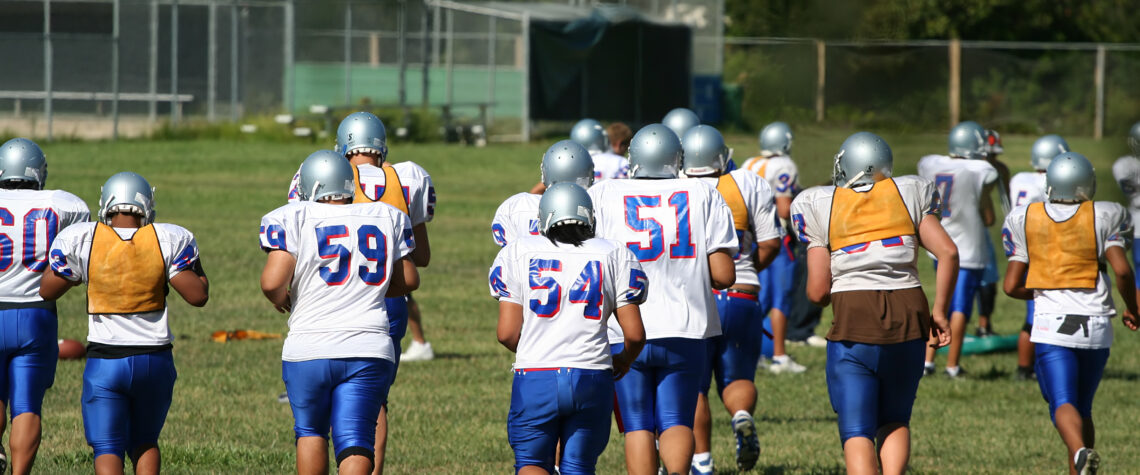At colleges and universities across the country, more than 500,000 student-athletes work every day to improve their skills, practice with teammates, and excel in their respective sports. Many of them have trained their entire lives, sacrificing family vacations, school dances, and time with friends for a chance to compete at the collegiate level.
But all too often, these students’ dreams of collegiate success are squashed by the one organization that should be championing these incredible athletes: the National Collegiate Athletics Association (NCAA). For years, the governing organization for college sports has targeted student-athletes—as well as their coaches and programs—with investigations that lack due process, transparency, and accountability. As a result, many students’ careers are needlessly ruined, and their programs are hamstrung with investigations that can go on for years without resolution.
Look no further than how the NCAA—which generated close to $1.3 billion in revenue during the 2022-2023 fiscal year—is going after schools such as the University of Tennessee over alleged infractions related to student-athletes’ compensation for their name, image, and likeness (NIL).
Although the Supreme Court issued a landmark ruling in 2021 that opened the door for collegiate athletes to receive compensation through endorsements, the NCAA has repeatedly failed to establish clear and consistent rules for the practice, leaving many state governments and universities to forge ahead with their own regulations. Yet, the NCAA recently cooked up an investigation into the University of Tennessee’s athletic program for allegedly violating an NIL policy that—according to university chancellor Donde Plowman—did not even exist at the time of the alleged infraction.
In fact, as Plowman wrote to the NCAA last month, the intercollegiate association has not identified a single university employee who committed any wrongdoing, and NCAA President Charlie Baker has refused to meet with Plowman and the school’s athletic director to discuss the allegations.
In response, the State of Tennessee is taking the fight to the NCAA, filing a lawsuit last month against the organization to ensure that student-athletes are adequately compensated for their talents and free to compete on the college stage.
This is a step in the right direction, but unfortunately, this is not an isolated incident: The NCAA has a long history of backroom deliberations that produce unfair punishments for athletes, coaches, and universities, including in Tennessee.
In 2019, the NCAA suspended University of Memphis basketball star James Wiseman for 12 games because his future coach provided his mother funds to relocate the Wiseman family to Memphis when James was still in high school. The NCAA handed down the harsh punishment against the freshman student-athlete—who ultimately left collegiate athletics over the suspension—even though he said he had no knowledge of the payment, and the organization initially cleared him to play.
For years, my colleagues and I on the Senate Commerce Committee have warned NCAA officials that the American people expect fairness, transparency, and consistency from an organization that wields tremendous influence over our nation’s students and universities. Yet time and again, the NCAA has shown that it is more interested in targeting student-athletes over unreasonable and unpredictable rule violations than enabling these young Americans to achieve athletic and academic success.
If the NCAA won’t act, Congress must step in. That’s why earlier this month I introduced—alongside Senator Booker—the NCAA Accountability Act, which would establish much-needed due process protections for student-athletes, coaches, and universities that are under investigation by the NCAA for rule violations.
Among its important provisions, this legislation would require the NCAA to complete an investigation no later than one year after it begins, bar the organization from publicly disclosing information about an ongoing investigation until formal charges are filed, and force the NCAA to provide universities fair notice regarding enforcement proceedings—including information about the individuals and alleged violations under investigation.
It would also promote fairness, consistency, and accountability by providing universities the right to resolve disputes through a three-person arbitration panel that would provide an independent, unbiased review and issue penalties commensurate with the severity of the infraction.
As an enforcement mechanism, the bill would direct the Department of Justice to establish supervisory and investigatory procedures to enforce the NCAA’s compliance.
With all the hard work they put into their academics and sports, student-athletes deserve every opportunity to succeed. The NCAA Accountability Act would establish the necessary standards and safeguards to ensure that happens.
Tennessee United States Senator Marsha Blackburn and her husband Chuck live in Williamson County, Tennessee. They have two children, Mary Morgan (Paul) Ketchel and Chad (Hillary) Blackburn, two grandsons, and a granddaughter.














